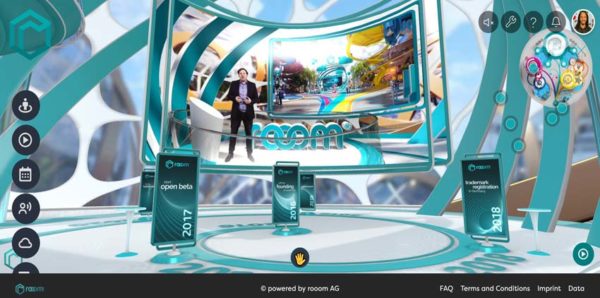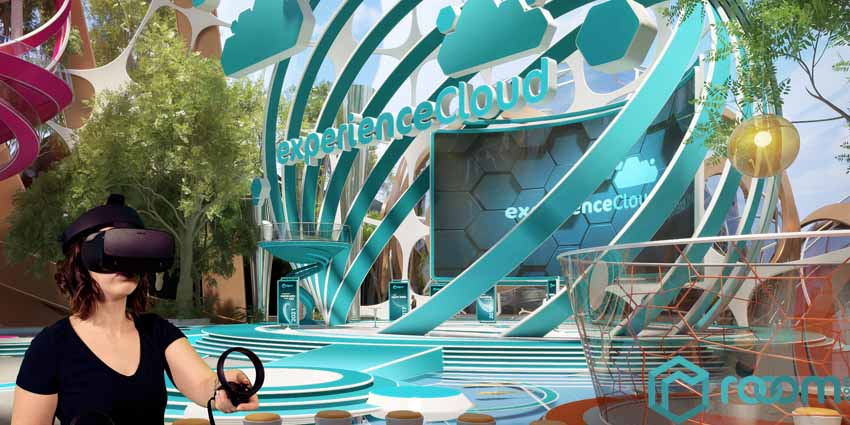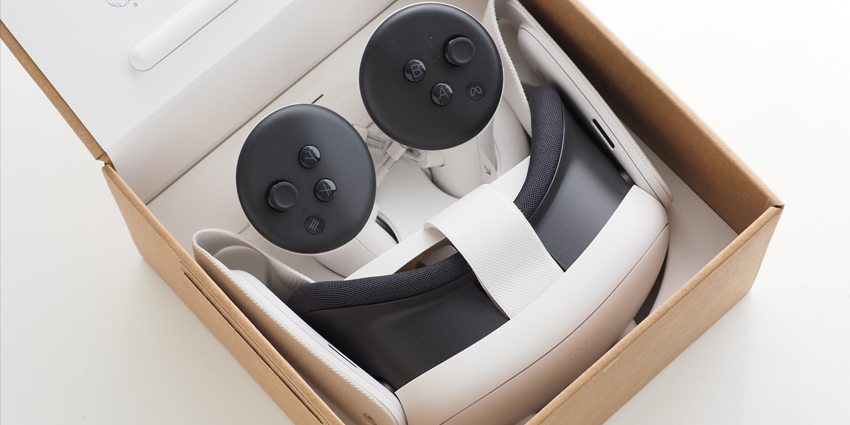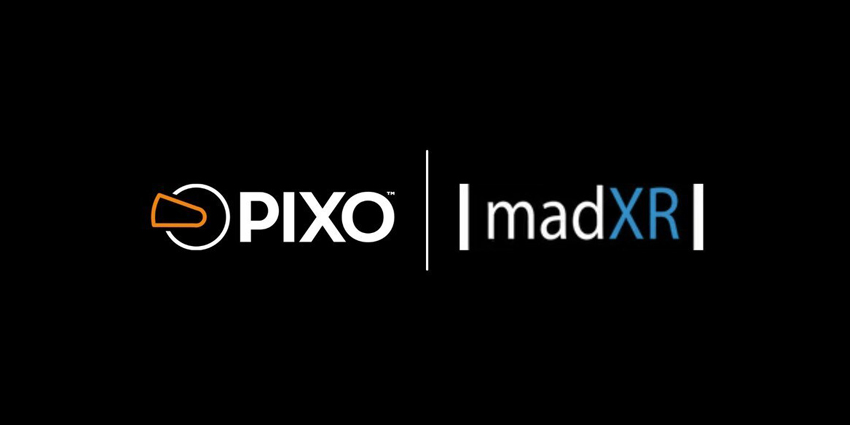German virtual environment provider rooom announced on Thursday it had earned a total of €6 million in investments and numerous new clients for its 3D virtual experiences platform.
Lead investors have included Beteiligungsmanagement Thueringen GmbH (bm-t) and several other German venture capital firms.
The platform is web-based and runs across multiple devices, including smartphones, desktops, laptops, tablets, as well as Facebook’s Oculus VR and supported augmented reality (VR/AR) headsets.
The simple interface allows users to reach virtual rooms with 3D content such as models, stages and others, using WebGL images designed by the Khronos Group, a non-profit consortium of more than 150 tech firms who create 3D graphics for virtual environments.
The Beaverton, Oregon-based group includes directors and officers from NVIDIA, Valve Corporation, Google, Sony, Huawei Technologies, Apple, Qualcomm, and many others.
rooom was founded in Jena, Germany in 2018, and has earned over 20 awards, including two Global Eventex Awards, the German Innovation Award, and Innovation & Excellence Award.
A Walkthrough of experienceCloud
XR Today attended the environment which was easily accessible via browsers supporting WebGL or VR headsets, and offered a rich, immersive virtual space for interacting with showcased 3D content.
Each room curated 3D objects, 360 degree walkthrough facilities such as libraries and offices, and presentations, and allowed people to interact as they manoeuvred across the platform.
According to the Jena-based firm, businesses and organisations hosting their content on the platform could do so without complex tools as experienceCloud featured an all-inclusive 3D object library, complete with a list of templates for exhibition booths, decorative objects, furniture and others.

The experienceCloud platform offers four subcategories:
- eventCloud: a solution to host internal and external business events on a web-based platform
- spaceCloud: a virtual space where firms can showcase services in 360-degree, 3D environments via mobile and desktop devices.
- productCloud: a space for firms to showcase their products online with 3D objects in WebGL-enabled browsers. Firms can scan their products with the rooom 3D Scan app to curate objects.
- immerseCloud: allows firms and organisations to us AR to market products from real estate, books, cultural institutions, and many others.
experiencCloud’s collaborative efforts with the Khronos Group will also lead to the development of future standards in WebGL, WebVR, and glTF, according to rooom.
Statements on rooom’s experienceCloud
The news comes as several of the world’s top companies, including Vodafone, DHL, E.ON, Carl Zeiss, Deutsche Telekom, as well as the IFA 2020 – Europe’s largest tech conference – have hosted hybrid events on experienceCloud at the height of the pandemic.
Ori Inbar, AWE World Expo Co-Founder, whose organisation plans to use the platform for its upcoming Augmented World Expo 2021 in November, said he was “excited about rooom’s offering”, which led to the collaboration for the event.
According to Inbar, previous attempts to build a 3D virtual platform for major events had been “clunky or not accessible to a wide audience”, but rooom’s experienceCloud solution had facilitated the development of virtual keynote speeches, expo halls for sponsers, and awards shows, among others.
He concluded: “I really can’t wait to see the reaction of our virtual attendees to this striking spectacle.”
Neil Trevett, President of the Khronos Group, said he was “delighted” to welcome rooom as its latest member as both shared “a vision of the power of 3D online experiences.”
He continued, stating,
“Khronos members are developing open, royalty-free standards for 3D and XR user interfaces that form a foundation of pervasive 3D interactive graphics that can enrich people’s everyday lives. rooom embodies the mission of leveraging these interoperability standards to create 3D experiences that are accessible on any device, be it a head mounted display, desktop, or mobile device”
He concluded his group welcomed rooom’s efforts in the “ongoing construction of the Metaverse.”
Hans Elstner, Chief Executive and Co-Founder of rooom.com, said experienceCloud had been the culmination of over three years of development without requiring multiple platforms, “mixing and matching products,” or the need to learn multiple user interfaces.
He added,
“Unlike so many other competitors, we see 3D virtual events as best experienced through a standard browser – we are excited to support VR and AR HMD’s as well for those lucky enough to own them, but we believe in democratizing 3D to the widest possible audience”
He concluded rooom would announce “a wide range of customers” as well as product enhancements and additional updates later in the year.
From rooom to Zoom
Following a walkthrough tour of the platform, XR Today spoke with Mr Elstner and Andrew J Nash, Chief Executive of rooom Americas, as both addressed global media in a Q&A forum on Zoom.
When asked about the specific measures rooom would take for revising and updating the experienceCloud platform, Mr Elstner stated his company would receive feedback from all stages of the user base, including organisers and attendees.

Users could range from event organisers, marketing departments, as well as product or virtual showroom presenters, he said, adding immersive and augmented reality-based experience designers could develop their environments independently.
Mr Elstner added,
“It just requires a two [methods to] setup, upload, and assemble these things […] but when it comes to features that you would like to add to the platform, then the help and support sections are integrated into the platform and you can request us to make the changes”
He also explained the internal voting features, which allowed users to democratise updates to the platform.
Mr Nash explained rooom was a “very feedback-centric” company via the platform’s metrics monitoring capabilities, which allowed adjustments during events derived from data-driven feedback.
Both he and Mr Elstner personally inspected each environment and engaged with customers, clients, and agency partners to gather additional feedback to build a company culture, he said, adding,
“every single event and interaction needs to succeed, and embracing that [idea] by understanding that and talking to our customers, which has given us the richest set of feedback, and we drive that back into our product release cycles very quickly”
rooom also expects to use the platform to build its company vision and “bring that into the [Metaverse] via our collaborative partner ecosystem,” which included content creators, artists, and others along with traditional technology partners.
He continued, stating: “We shouldn’t be in the way of that, but we should be empowering, enabling, and engaging a community to change our new experiences and paradigms.”
When asked by XR Today about whether rooom would include cross-collaborative applications with partner firms, similarly to tech giants Facebook and Zoom, who announced whiteboard sharing and other interoperable features, he said: “We’re walking the walk and talking the talk.”
He told XR Today,
“We do it now on our platform, we’re going to do more of it in the future, and we’re going to openly embrace collaboration as much as we possibly can. It’s one of the reasons that we joined The Khronos Group as a member, under those standards, to work with world-class players who are developing and defining standards to take us all forward.
rooom was also a “big believer in open, collaborative” efforts, Nash concluded, citing the platform’s use of Zoom to host the Q&A session.
The news comes amid the development of Metaverse-based platforms such as Facebook’s Horizon Workrooms and Arthur, a virtual environment for Fortune 500 companies and global organisations.







